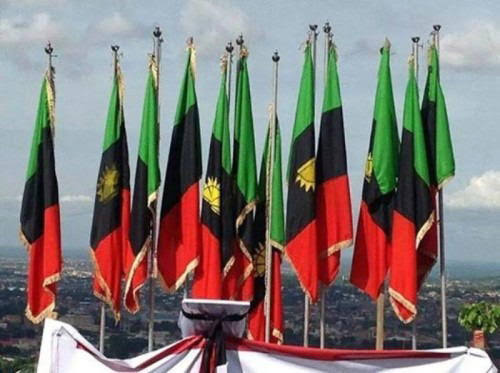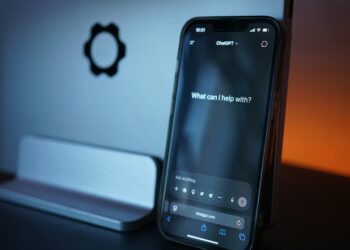Simon Ekpa, leader of the Autopilot section of the Indigenous People of Biafra (IPOB), has taken the Biafra issue to the United States, seeking worldwide backing and recognition for the movement.
Ekpa, who takes pride in being the Prime Minister of the Biafra Republic Government In-Exile, BRGIE, inked a $130,000 (about N205 million) lobbying agreement with Moran Global Strategies, MGS, a US-based firm.
The agreement is expected to allow high-level advocacy and strategic engagement with important stakeholders in Washington, D.C. such as lawmakers, policymakers, and major think tanks, in order to advance the movement for Biafra’s independence.

This move represents a new chapter in the long-running struggle for Biafran independence, as Ekpa seeks to use the global stage to highlight the Biafran people’s frustrations and ambitions.
According to a Premium Times story, the Finland-based agitator applied in June 2024 for the services of MGS, which is owned by former US politician James Moran.
Mr Moran signed the letter of agreement for the lobbying business on June 10, 2024, and Mr Ekpa signed it on behalf of the BRGIE on June 12, 2024.
According to the contract, BRGIE will pay MGS a monthly charge of $10,000 (about N15.8 million) for the services rendered.
According to the paper, the contract began on June 15, 2024, and will end on June 14, 2025. Monthly payments would be charged in advance on the first of each month and due on or before the 15th.
The contract, which is renewable on an annual basis, states that MGS will assist the separatist leader in convincing the US government and corporate sector to support Biafra’s separation from Nigeria.
“Under the terms of this letter agreement, MGS agrees to give strategic assistance to Biafra and encourage interaction with appropriate officials of the US government’s Executive and Legislative Branches, as well as third-party stakeholders.
“MGS will support Biafra’s fundamental goal to encourage the United States government to support Biafran independence and to recognise Biafra as the only entity which represents Biafra,” according to a section of the agreement.
What they’re saying
“MGS would push the narrative to US governmental and non-governmental stakeholders that Biafra, once established as an independent state and under Biafra’s supervision, will be a close ally of the US as well as a bulwark against Islamic terrorism in the region.
“Among other things, MGS will provide education to US and non-US stakeholders on matters of concern relating to the Government of Nigeria.
“These concerns may include, but are not limited to, human rights violations, religious freedom issues, such as the persecution of Nigerian Christians, the rise of Islamic fundamentalism within the Nigerian government, the Nigerian government’s collaboration with US adversaries, and wider security concerns.
“ It stated that the US Congress and other entities, such as think tanks and faith-based and human rights organisations, will press the US government to actively engage BRGIE.
In Essence
By involving a US-based lobbying firm, Ekpa is attempting to bring the Biafra issue to the attention of influential stakeholders in Washington, D.C. This could potentially increase pressure on the Nigerian government by framing the Biafran struggle within the context of global concerns such as human rights, religious freedom, and counterterrorism
Lobbying is a common practice in the US, where interest groups seek to influence policy through engagement with lawmakers, policymakers, and think tanks. By securing a lobbying contract, Ekpa is aiming to create a narrative that positions Biafra as a potential ally of the US, particularly in the fight against Islamic terrorism in West Africa. This approach might resonate with certain US lawmakers and interest groups, especially those concerned with global security and human rights.
If successful, this lobbying effort could complicate Nigeria’s diplomatic relations with the US. The Nigerian government is likely to view this as a serious challenge to its sovereignty and territorial integrity. It could also lead to increased scrutiny of Nigeria’s internal policies and actions, particularly concerning human rights and religious freedom
While the lobbying effort may bring attention to the Biafran cause, it is unlikely to result in immediate or significant changes in US foreign policy. The US government typically avoids direct involvement in secessionist movements, especially in countries with which it has strong diplomatic and economic ties.
Moreover, Nigeria’s strategic importance in Africa, particularly in terms of counterterrorism and regional stability, may outweigh the arguments presented by the Biafran lobbyists.

















